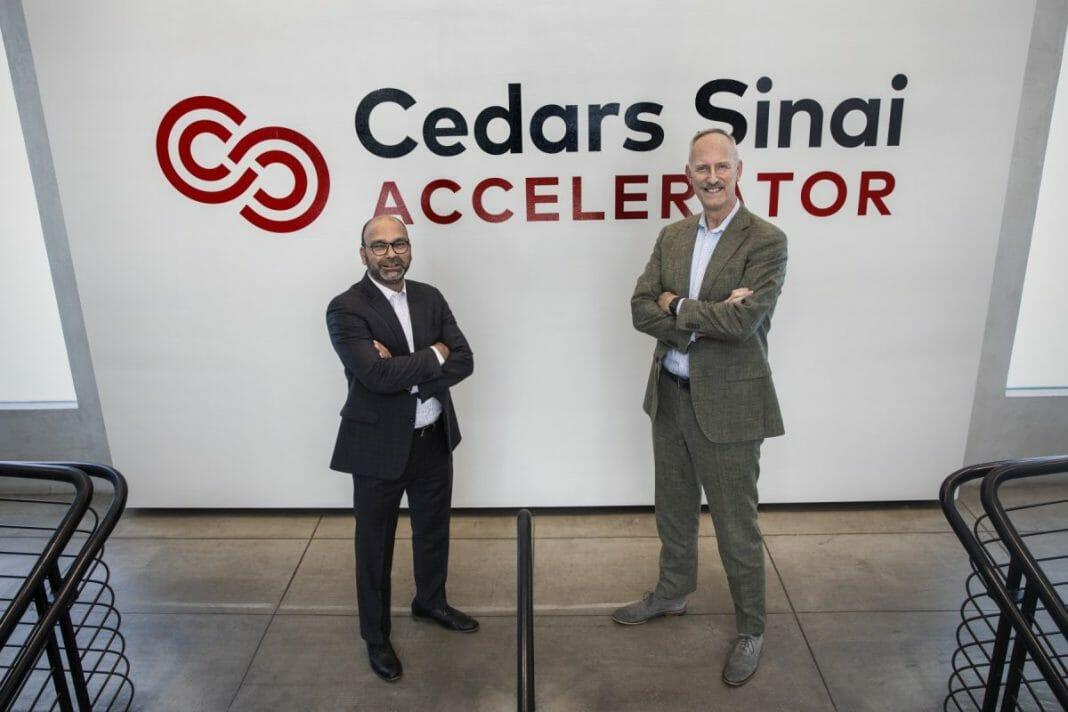The Cedars-Sinai Accelerator is welcoming 10 health-tech companies from around the world to its ninth accelerator class. The businesses are building a variety of healthcare solutions-from monitoring devices for sepsis, heart failure and stroke, to virtual reality video games aimed at helping children manage pain and anxiety during medical procedures.
During the three-month program, company leaders get hands-on experience, along with mentorship from Cedars-Sinai researchers, administrators and clinicians, to develop and refine the practical applications of their products and solutions.
“I’m excited to welcome these innovative teams from around the globe who are developing new technologies which have the promise to enhance the delivery of efficient and cost-effective patient care,” said James Laur, JD, vice president of Intellectual Property, managing director of Cedars-Sinai Technology Ventures and one of the accelerator’s founders.
In addition to the personalized guidance, each company will receive a $100,000 investment from Cedars-Sinai. After completing the three-month program, company leaders will share their progress with an audience of investors, mentors, potential customers and members of the news media at a Demo Day.
“The provision of strategic and operational insights at the outset of development plays a pivotal role in driving healthcare innovations, and each accelerator class brings that opportunity to the Cedars-Sinai community,” said Nirdesh K. Gupta, PhD, managing director of Cedars-Sinai Technology Ventures. “With our next class, we are looking forward to continuing to transform healthcare and research here in Los Angeles and beyond.”
The ninth Cedars-Sinai Accelerator class includes:
52North-Cambridge, U.K.-based company 52North Health develops a medical device that can be used by patients outside of the hospital to monitor their risk of neutropenic sepsis, a life-threatening complication of chemotherapy. The device, Neutrocheck, offers at-home testing using blood from a small pinprick.
Acorai-Stockholm, Sweden-based company Acorai develops a device for heart failure management through noninvasive intracardiac pressure monitoring to help reduce hospitalizations and readmissions. The Acorai Heart Monitor combines seismic, audio, visual and electrical sensors, and captures and analyzes data in real time using machine learning.
Alva Health-New Haven, Connecticut-based Alva Health develops wearable monitoring devices designed for early stroke detection. The system uses machine learning to monitor the onset of hemiparesis (paralysis on one side of the body). When the system detects stroke, the device notifies the user immediately. If there is no response from the user, the device can connect users with emergency responders.
CARI Health-San Diego, California-based CARI Health develops a remote medication monitor to enable personalized dosing and real-time medication adherence monitoring. CARI’s solution combines proprietary core sensing technology with just-in-time intervention software, mobile apps, data and AI to detect medication levels in real time.
equalityMD-Richmond, Virginia-based equalityMD develops a community-centric platform for LGBTQ+ patients to share and connect with others. The platform also provides telehealth services by connecting to clinicians, enabling LGBTQ+ patients to share their experiences and foster a true sense of community around health and wellness.
Machine Medicine-London, U.K.-based Machine Medicine develops a platform that helps researchers capture and assess motor functioning in patients with neuromodulation devices. KELVIN (the software component) enables anyone to do a motor assessment remotely via their smartphone, allowing for faster and more frequent patient monitoring.
Paperplane Therapeutics-Quebec, Canada-based Paperplane Therapeutics designs therapeutic virtual reality video games aimed at improving pain and anxiety management in children undergoing various medical treatments or procedures.
Predicta Med-Ramat Gan, Israel-based Predicta Med develops a solution for early detection and treatment selection for undiagnosed autoimmune diseases. Predicta Med’s deep learning engine aggregates electronic medical record and claims data, and enriches and analyzes this data to identify patients at risk of having an autoimmune disease and provide actionable insights to enable optimal intervention.
RCE.ai-Carlsbad, California-based RCE Technologies develops a noninvasive device that monitors cardiac proteins in the blood, empowering emergency medicine physicians and cardiologists in the early assessment of patients presenting with chest pain.
TestDynamics-Austin, Texas-based TestDynamics develops a platform that offers hospitals and physicians one-stop, intelligent access to a wide range of AI models for medical imaging. It aims to improve patient care outcomes, reduce healthcare costs and lower malpractice risk.
